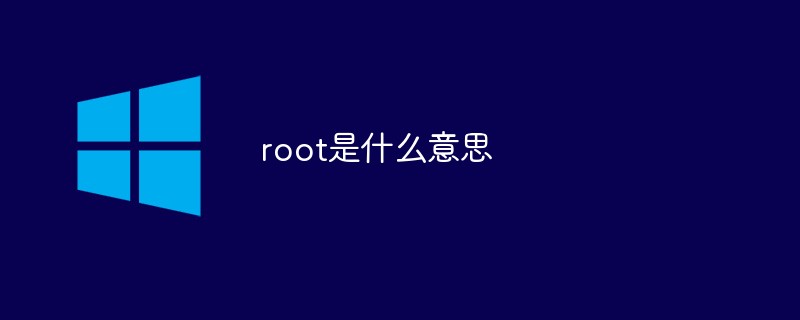
Root has all permissions in the device system. It is the only user that exists in UNIX and UNIX-like systems. It has control over the bottom layer of the system and system files, and can start or stop the system.

#The operating environment of this tutorial: linux5.9.8 system, Dell G3 computer.
What is root? Many people have heard of root, but don’t know what root means. Today I will summarize for you what root means.
1: What does root mean
root has all permissions in the device system, is the only user that exists in UNIX and UNIX-like systems, and controls the system The underlying and system files can start or stop the system and other functions.
2: Which platforms can be rooted
Some Linux platforms and UNIX can be rooted. Of course, Android systems that are often rooted can be rooted.
3: Root permission settings
Root operates on the top-level directory of the system. The top-level directory contains many seed directories and files. The top-level directory has slashes and backslash to obtain some permissions, such as blocking ads, and also allowing the system to delete many files. Improper use of root permissions can be very dangerous. Under normal circumstances, we do not recommend using root.
Four: The security of root
Root has the operating permissions of all systems. If the root password is leaked, the computer may be disadvantaged, but delete it Built-in programs require the root password to ensure the security of the computer. In the computer, root is inaccessible to other users, but some systems are more secure than configurable.
The above is a complete introduction to what root means. If you want to know more about operation and maintenance, please pay attention to the PHP Chinese website.
The above is the detailed content of What does root mean?. For more information, please follow other related articles on the PHP Chinese website!